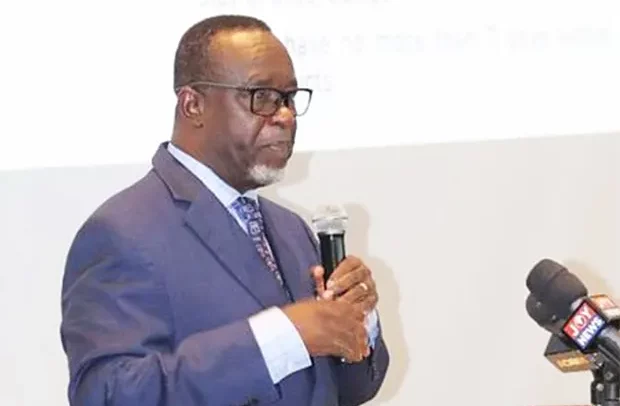Acting Chief Justice Paul Baffoe-Bonnie
Acting Chief Justice Paul Baffoe-Bonnie, has reiterated the need for justice delivery to be anchored on leadership, innovation and technology to enable the Judiciary to deliver on its mandate of adjudicating cases efficiently.
According to him, “the convergence of leadership, innovation and technology is not accidental; it is strategic,” adding that “when we integrate these three pillars, we create a justice system that is resilient, inclusive and future-ready.”
Justice Baffoe-Bonnie, in a message ahead of the 2025-2026 legal year, noted that the challenges confronting our justice system—heavy caseloads, case backlogs, limited resources and procedural delays—cannot be addressed by doing things the same way they have always been done.
He, however, pointed out that innovation is not only about introducing new systems, but also about cultivating a culture that values efficiency, openness and adaptability.
“Court users should encounter not barriers but pathways—clear signage, simplified forms, helpful court staff, and procedures that respect their time and dignity,” he noted.
He added that the Judiciary must be open to progressive interpretations that reflect the changing realities of society, balancing continuity with the need for justice that is relevant and living.
Touching on technology, Justice Baffoe-Bonnie indicated that it is no longer a luxury for justice delivery but a necessity.
“The recent global crises have underscored the importance of digital tools in ensuring continuity of service. Virtual hearings, e-filing systems, electronic case management, and digital registries are no longer optional experiments—they are the new frontiers of justice,” he disclosed.
He said embracing technology enhances transparency by allowing litigants to track their cases, reduces delays by automating repetitive processes, and widens access by breaking geographical barriers.
He, however, advocated caution, noting that technology must not create new divides between those who can access it and those who cannot.
“As we digitise, we must ensure that no citizen is left behind — that rural communities, the elderly and those without digital literacy are equally empowered to benefit from modernised justice systems,” he stressed.
He added that “investing in technology must also go hand in hand with building the capacity of our judges, lawyers, and court staff. Training and re-training are essential if digital tools are to be effectively used and sustained.”
Justice Baffoe-Bonie also called for strong leadership in the Judiciary, noting that it “means more than maintaining tradition; it means having the courage to reform where systems are failing, to speak truth where silence enables injustice, and to remain steadfast in upholding the Constitution even in the face of pressure.”
The Anglican Bishop of Accra, Rt. Rev. Dr. Daniel Sylvanus Mensah Torto, speaking at a church service to usher in the new legal year, noted that the Judiciary must be seen to foster trust among the public and ensure that justice is served without bias, ill will, or favour.
“The Judiciary must follow due process, not to be against the processes. There must continue to be a non-political arm of government where she acts with integrity and follow the rule of law,” he added.
BY Gibril Abdul Razak


